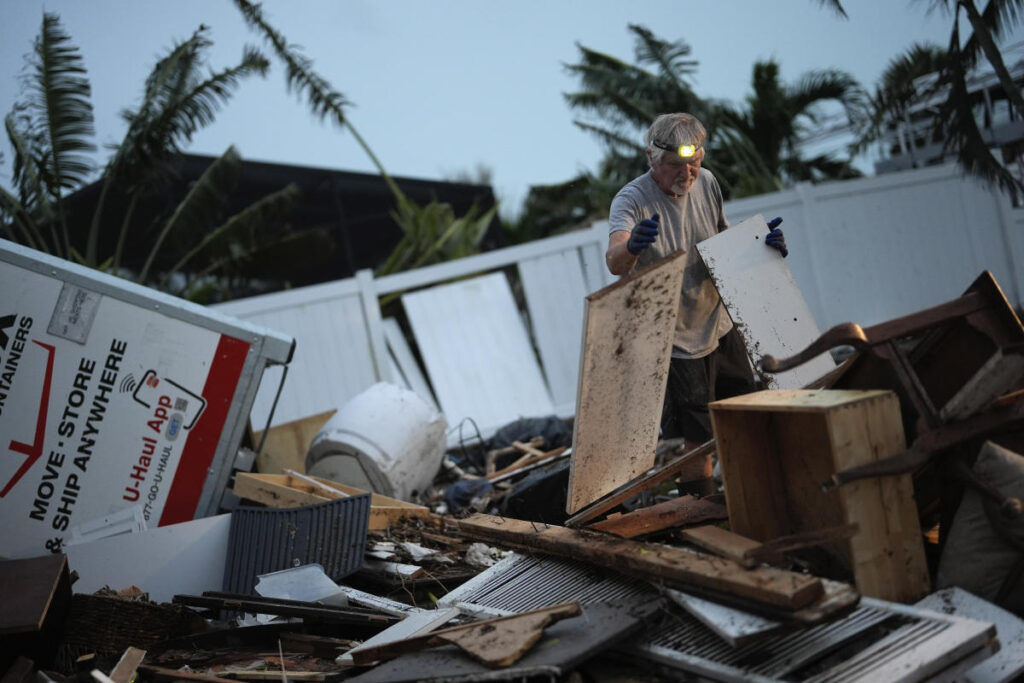In a recent interview on CBS’s “Face the Nation,” House Speaker Mike Johnson expressed the commitment of Congress to address disaster relief needs stemming from Hurricanes Helene and Milton. However, Johnson remarked that it would be premature to reconvene Congress immediately. He explained that in the aftermath of storms, states must first evaluate and quantify their needs before formally requesting support from Congress. Johnson emphasized that once those assessments are completed, Congress would convene in a bipartisan effort to allocate the necessary resources for recovery and rebuilding. He also mentioned that prior to Hurricane Helene making landfall, Congress had already approved $20 billion for FEMA, and while funds have been allocated for immediate relief, detailed calculations for further assistance will take time.
Johnson noted that, as of the latest updates, only two percent of the funds allocated for storm relief had been distributed, highlighting the ongoing need for assistance. While recognizing that Congress is currently scheduled to remain out of session until after the election, he reiterated the importance of waiting for proper assessments of the damage caused by the hurricanes before determining the full scale of congressional support needed. The House Speaker’s comments reflect a cautious approach to disaster funding, prioritizing accurate evaluations over immediate legislative action.
On the show, Secretary of the Department of Homeland Security, Alejandro Mayorkas, provided an update on FEMA’s current capabilities to address the immediate needs of those affected by the hurricanes. He indicated that there is currently sufficient funding available for individuals impacted by these natural disasters. Despite urging Congress to return for additional funding discussions to support FEMA’s Disaster Relief Fund, Mayorkas acknowledged that the hurricane season remains active, suggesting that additional storms could precipitate further funding requirements.
Mayorkas highlighted the urgency for Congress to act swiftly in securing more funds for FEMA, pointing out that while the agency has resources to respond to immediate needs, the unpredictability of the hurricane season calls for proactive measures. He echoed Johnson’s sentiment regarding the state of individuals affected by the hurricanes, emphasizing the importance of timely assistance to those in distress. The need for expedited action was underscored by Johnson, who criticized the pacing of funds distribution by the Biden administration, stating that affected communities in Florida and North Carolina require immediate support.
In response to claims of delays in aid by the administration, Mayorkas defended the government’s actions, noting that over $470 million has been distributed for hurricane relief. He stressed the importance of thorough assessments to gauge the extent of damage caused, particularly by Hurricane Milton, which had unprecedented strength and led to numerous tornadoes. Mayorkas warned against complacency, urging readiness for potential subsequent disasters, and recommended a more strategic planning approach to disaster management rather than a reactive one.
In summary, the dialogue between Johnson and Mayorkas illustrated the complexities involved in disaster relief coordination, emphasizing the critical role of assessments in determining funding needs. Both officials acknowledged the pressing needs of hurricane victims and the necessity for Congress to engage in bipartisan efforts for future aid. As the current hurricane season progresses, they advocated for timely government actions while recognizing the limitations imposed by the evaluation process following such catastrophic events.

